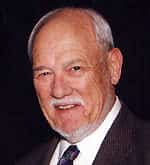 By ANDY ANDEWS
By ANDY ANDEWS
Los Alamos World Futures Institute
In part one of this series, I referenced the Cadet Honor Code of the United States Military Academy. While I graduated in 1964, I returned 12 years later (1976) to become a member of the faculty. Shortly before I arrived, a major cheating scandal occurred in the spring of 1976 resulting in 151 cadets being separated.
The scandal was about cadets cheating on a “take home” exam in electrical engineering. When I arrived I had a job to do and did not have time (in my judgment) to devote to observing the events that were wrapping up. The system could take care of itself and did.
But what was the cost of the scandal? Numerous lawyers became involved plus the superintendent, the commandant of cadets, the secretary of the Army, and elements of their staffs. In 1960, I was told that I was receiving a $50,000 year education. Using that number, the number of cadets separated, the 2.5 years each cadet had been a cadet and inflation, $105 million had already be spent on the cadets alone. And the number does not include any assessment of the impact on those dismissed.
Lying, cheating and stealing deals with the personal conduct of individuals, groups, companies, other legal entities, and the government. It deals with optimizing positions in the game of life and gaining a better position than the victim or, in some cases, ensuring that someone is not a victim. It deals with intent of the doer. Recall mens res from my last column. And it deals with the legal system and the collective determination of what lying, cheating and stealing sins are punishable by society.
Remember in the last column, we looked at taking a pen from the local bank. It was even encouraged by the bank because it resulted in free advertising. Was it stealing in society’s perspective? NO. So why can’t you take a $20 bill from the cash drawer? Because from society’s perspective that is stealing.
You go to dinner at a new friend’s house. The dinner took several hours to prepare and was served elegantly. You take your first bite of the food and find it very “subpar” or expletive deleted. Then your friend asks you, “What do you think of the entrée?” You politely, politically lie. Is this OK? I believe society would say yes.
You are working on your taxes and claim $200 for $199 expense fully believing (notice “lie” in the middle of believe) you could claim a typo if caught. Is this OK? I believe both society and the government would say no – maybe.
You accuse someone of personal misconduct and seek damages. The accused says it did not happen. Do you need to prove the truth of your claim? The government, in a court of law, says yes. But society may or may not say yes, especially in the court of public opinion.
Now consider stealing, taking the property of someone else for personal gain. The meaning of the word “property” itself has had many arguments, especially in the law domain. Is getting a better grade than a classmate and thereby graduating with higher standing that enables getting a higher paying job stealing? Is lying in an advertisement to sell more stuff and thereby “taking” more money from customers stealing? What is lying in an advertisement? Is using your position of influence to favor yourself or another person (or company) stealing? Is falsifying records to add to your bank account stealing? Is hijacking a car to sell on the black market stealing? Is robbing a bank at gunpoint stealing? Is eating a grape at the supermarket stealing?
Lying, cheating and stealing are words that each encompass a spectrum of badness distributed from zero to some poorly defined pinnacle. As a society we try to define that spectrum and, in many cases, incorporate it into a legal code administered by the government. But what if every member of society was implanted with a gene that disabled them from ever lying, cheating or stealing? In my view, society would fall apart. The issue is where do you draw the line between acceptable and unacceptable with regard to social conduct and, more importantly, how do you instill in people respect for and the place of the line?
When I was growing up, the pace and quantity of information flow was much more moderate because of the communication technology of the time. My exposure to philosophical development was limited to family, reading, schools, friends (with the same exposure), Sky King and the Lone Ranger. So when I entered West Point, the honor code was simple in my comprehension. I really did not understand that telling your hostess the food was good might be a lie. But my classmates may or may not have arrived with similar experiences in their formative years.
Flash forward to today and look at the formative environment of young people. The major mechanical difference is the speed, quantity and distribution of information, both good and bad, from microcosms where the basis of judgment has evolved significantly differently. How do we ensure future generations develop the right “genetic code” for lying, cheating and stealing based on correct and proper information? Of equal, perhaps more, importance, what is the code?
The Los Alamos World Futures Institute website is LAWorldFutures.org. Feedback, volunteers and donations (501.c.3) are welcome. Email andy.andrews@laworldfutres.org or bob.nolen@laworldfutures.org. Previously published columns can be found at www.ladailypost.com or www.laworldfutures.org.

